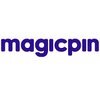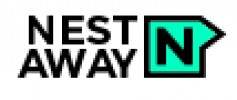
i
Bijnis
Filter interviews by
Bijnis Interview Questions and Answers
7 Interview questions
I made the decision to buy based on product quality, price, and reviews.
Considered product quality and features
Compared prices from different sellers
Read reviews from other buyers
Different types of printing used in T-shirts include screen printing, heat transfer printing, and direct-to-garment printing.
Screen printing involves using a stencil to apply layers of ink onto the T-shirt.
Heat transfer printing uses heat to transfer a design from a carrier paper onto the fabric.
Direct-to-garment printing involves printing directly onto the fabric using specialized inkjet technology.
The cost of fabric per piece in a T-shirt varies depending on the type of fabric used, quantity purchased, supplier pricing, and other factors.
Cost of fabric can range from $1 to $5 per piece for a basic cotton T-shirt
Higher quality fabrics like organic cotton or bamboo can cost more, ranging from $5 to $10 per piece
Bulk purchasing can lower the cost per piece significantly
Supplier negotiations and sourcing strate...
Yes, I have knowledge in Apparels manufacturing.
I have experience working with apparel manufacturers to source materials and production.
I am familiar with the process of creating tech packs and communicating with factories.
I have knowledge of quality control standards in the apparel industry.
I have worked on improving lead times and reducing costs in apparel manufacturing.
I am aware of trends and innovations in th...
Tshirt manufacturing involves designing, sourcing materials, cutting fabric, sewing, printing, and quality control.
Designing the Tshirt and creating a pattern
Sourcing materials such as fabric, thread, and labels
Cutting the fabric based on the pattern
Sewing the pieces together to form the Tshirt
Printing designs or logos on the Tshirt if required
Quality control checks for stitching, sizing, and printing
I have extensive experience with MS Excel, particularly in using pivot tables and VLOOKUP for data analysis and reporting.
Proficient in creating pivot tables to summarize large datasets, allowing for quick insights into trends and patterns.
Utilized VLOOKUP to merge data from different sources, enhancing the accuracy of reports and analyses.
Created dynamic dashboards using pivot tables and charts to visualize key p...
B2B sales involves selling products or services from one business to another, focusing on building long-term relationships and meeting specific business needs.
Focus on building relationships with key decision makers in other businesses
Understand the unique needs and challenges of each business you are selling to
Offer customized solutions that address those specific needs
Negotiate contracts and pricing that are mut...
Bijnis Interview Experiences
10 interviews found
I applied via Approached by Company and was interviewed in Jan 2024. There was 1 interview round.
(4 Questions)
- Q1. Tell me about yourself.
- Ans.
I am a dedicated and detail-oriented buyer with a strong background in procurement and negotiation.
I have X years of experience in purchasing and sourcing materials for various industries.
I am skilled in vendor management and contract negotiation.
I have a proven track record of cost savings and improving supply chain efficiency.
I am proficient in analyzing market trends and identifying cost-saving opportunities.
I am a ...
- Q2. Tell me about your current Job profile.
- Ans.
I am currently working as a Buyer in a retail company, responsible for sourcing and purchasing products for resale.
Negotiating with suppliers to secure favorable terms and pricing
Analyzing market trends to make informed purchasing decisions
Maintaining relationships with vendors to ensure timely delivery of goods
Collaborating with other departments to forecast demand and plan inventory levels
- Q3. What decision you took in buying ?
- Ans.
I made the decision to buy based on product quality, price, and reviews.
Considered product quality and features
Compared prices from different sellers
Read reviews from other buyers
- Q4. Whom you report?
- Ans.
I report to the Senior Buyer in the purchasing department.
I report directly to the Senior Buyer in the purchasing department.
I provide regular updates on purchasing activities and decisions to the Senior Buyer.
I collaborate with the Senior Buyer on vendor negotiations and procurement strategies.
Interview Preparation Tips
I applied via Approached by Company and was interviewed in Mar 2023. There were 2 interview rounds.
(5 Questions)
- Q1. Tell me something about yourself?
- Q2. Have you ever had worked in B2B or B2C company as like Business?
- Q3. Have you had any knowledge regarding Apparels manufacturing
- Ans.
Yes, I have knowledge in Apparels manufacturing.
I have experience working with apparel manufacturers to source materials and production.
I am familiar with the process of creating tech packs and communicating with factories.
I have knowledge of quality control standards in the apparel industry.
I have worked on improving lead times and reducing costs in apparel manufacturing.
I am aware of trends and innovations in the app...
- Q4. Have you ever worked in any shoes manufacturing especially they ask as if do you have any knowledge of shoes manufacturing?
- Q5. Have you had a knowledge of Ms-excel, especially pivot table, v-lookup?
- Ans.
I have extensive experience with MS Excel, particularly in using pivot tables and VLOOKUP for data analysis and reporting.
Proficient in creating pivot tables to summarize large datasets, allowing for quick insights into trends and patterns.
Utilized VLOOKUP to merge data from different sources, enhancing the accuracy of reports and analyses.
Created dynamic dashboards using pivot tables and charts to visualize key perfor...
(3 Questions)
- Q1. Detail explain whole process of Tshirt manufacturing?
- Ans.
Tshirt manufacturing involves designing, sourcing materials, cutting fabric, sewing, printing, and quality control.
Designing the Tshirt and creating a pattern
Sourcing materials such as fabric, thread, and labels
Cutting the fabric based on the pattern
Sewing the pieces together to form the Tshirt
Printing designs or logos on the Tshirt if required
Quality control checks for stitching, sizing, and printing
- Q2. What is cost of fabric per piece in Tshirt?
- Ans.
The cost of fabric per piece in a T-shirt varies depending on the type of fabric used, quantity purchased, supplier pricing, and other factors.
Cost of fabric can range from $1 to $5 per piece for a basic cotton T-shirt
Higher quality fabrics like organic cotton or bamboo can cost more, ranging from $5 to $10 per piece
Bulk purchasing can lower the cost per piece significantly
Supplier negotiations and sourcing strategies ...
- Q3. What is different type of printing used in Tshirts?
- Ans.
Different types of printing used in T-shirts include screen printing, heat transfer printing, and direct-to-garment printing.
Screen printing involves using a stencil to apply layers of ink onto the T-shirt.
Heat transfer printing uses heat to transfer a design from a carrier paper onto the fabric.
Direct-to-garment printing involves printing directly onto the fabric using specialized inkjet technology.
Interview Preparation Tips

(1 Question)
- Q1. Google Analytics, and Campaign Attributions
(2 Questions)
- Q1. Introduction and Show confidence to own the role
- Q2. Introduction and show confidence to own the role about the CRM position

(2 Questions)
- Q1. Tell me about your self
- Q2. What you know about b2b sales
- Ans.
B2B sales involves selling products or services from one business to another, focusing on building long-term relationships and meeting specific business needs.
Focus on building relationships with key decision makers in other businesses
Understand the unique needs and challenges of each business you are selling to
Offer customized solutions that address those specific needs
Negotiate contracts and pricing that are mutually...
Interview Preparation Tips
I applied via LinkedIn and was interviewed in Oct 2022. There was 1 interview round.
(3 Questions)
- Q1. Introduction and base knowledge
- Q2. What did you learn in previous internships
- Q3. Are you ready to hustle
Interview Preparation Tips

(1 Question)
- Q1. Only Salary discussion and joining process
(1 Question)
- Q1. Same joining process and documents
Interview Preparation Tips

(2 Questions)
- Q1. Organization working
- Q2. How to convence the manufacturer
- Ans.
To convince a manufacturer, showcase the benefits of the partnership and address any concerns they may have.
Highlight the potential for increased sales and revenue
Emphasize the quality and reliability of their products
Address any concerns they may have, such as production capacity or pricing
Provide examples of successful partnerships with similar companies
Offer incentives or benefits for partnering with your company
(1 Question)
- Q1. Salary expectation, previous company
Interview Preparation Tips
I applied via Referral and was interviewed before Mar 2022. There were 3 interview rounds.

(2 Questions)
- Q1. Tell me about yourself
- Q2. Tell me about yourself and what was your previous experience
(1 Question)
- Q1. Same as first round tell me about yourself and previous experience
Interview Preparation Tips
I applied via Naukri.com and was interviewed in Oct 2021. There were 3 interview rounds.

(3 Questions)
- Q1. What are your salary expectations?
- Q2. What are your strengths and weaknesses?
- Q3. Tell me about yourself.
(1 Question)
- Q1. Share details of your previous job.
Interview Preparation Tips
I applied via Referral and was interviewed in Aug 2021. There was 1 interview round.
(2 Questions)
- Q1. Why should we hire you?
- Q2. What are your salary expectations?
Interview Preparation Tips
Top trending discussions






Bijnis Interview FAQs
Tell us how to improve this page.
Bijnis Interviews By Designations
Interview Questions for Popular Designations
Overall Interview Experience Rating
based on 12 interview experiences
Difficulty level
Duration
Interview Questions from Similar Companies
Bijnis Reviews and Ratings
based on 136 reviews
Rating in categories
|
Key Account Manager
78
salaries
| ₹2.2 L/yr - ₹4.5 L/yr |
|
Sourcing Manager
42
salaries
| ₹3.9 L/yr - ₹6.9 L/yr |
|
Team Lead
13
salaries
| ₹3.5 L/yr - ₹7.8 L/yr |
|
Category Manager
12
salaries
| ₹4.2 L/yr - ₹10.4 L/yr |
|
Portfolio Manager
12
salaries
| ₹3.5 L/yr - ₹6 L/yr |

MagicPin

Awign Enterprises

Nestaway

Ketto
- Home >
- Interviews >
- Bijnis Interview Questions













